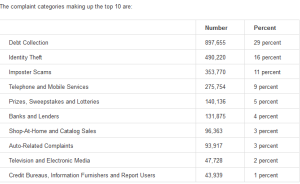NEW JERSEY LAW AND THE CONSUMER FRAUD ACT
NO DIRECT CONTACT IS REQUIRED BETWEEN THE DEFENDANT AND THE CONSUMER
THE DEFENDANT’S ASSERTION THAT THEY ARE NOT SUBJECT TO THE CONSUMER FRAUD ACT BECAUSE THEY DID NOT DIRECTLY SELL OR HAVE ANY DIRECT CONTACT WITH THE PLAINTIFF IS NOT SUPPORTED BY THE LAW, INCLUDING THE DEFINITION SECTION OF THE CONSUMER FRAUD ACT
A. NO DIRECT RELATIONSHIP OR CONTRACT IS REQUIRED BETWEEN THE PLAINTIFF AND DEFENDANT TO MAINTAIN A CLAIM UNDER THE CFA
The lack of a contractual relationship or privity does not automatically defeat a the plaintiff’s claim. The determination of whether a duty exists is generally considered a matter of law to be decided by the court. Carvalho v. Toll Bros. and Developers, supra, 143 N.J. at 572; S.P. v. Collier High School, 319 N.J.Super. 452, 467,(App.Div.1999). The assessment of fairness and policy “involves identifying, weighing, and balancing several factors-the relationship of the parties, the nature of the attendant risk, the opportunity and ability to exercise care, and the public interest in the proposed solution” Zielinsky v. Professional Appraisals 326 N.J.Super 219 (App.Div 1999).
There is no privity requirement to maintain a cause of action under the New Jersey Consumer Fraud Act. In Alloway v. General Marine Ind., 149 N.J. 620 (1997), the Supreme Court held that the New Jersey Consumer Fraud Act does not require privity to maintain a cause of action. In Alloway, the plaintiff purchased a defective boat, which was built by the (manufacturer) defendant. The plaintiff instituted suit against the manufacturer and other defendants for tort (negligence) and warranty claims. The Court dismissed the tort claims and permitted the plaintiff to proceed on the warranty claims, holding that privity was required for tort claims, but not for warranty type claims. The underpinnings of the decision were that the plaintiff had statutory avenues of remedy including, but not limited to, the Uniform Commercial Code (UCC) and the New Jersey Consumer Fraud Act to address economic injuries to property. Id. at 639 – 640. The Court specifically left unanswered whether or not tort or contract law applies to a product that poses a risk of causing personal injuries or property damage, but has caused only economic loss to the product itself.
The trend in the application of the Consumer Fraud Act has been to expand liability to those “upstream, in the chain of commerce,” including but not limited to remote suppliers of component parts whose products are passed on to a buyer and its representations are made to, or intended to be conveyed to the ultimate purchaser. Perth Amboy Iron Works v. Amhouse, 226 N.J. Super 200, 211 (App. Div. 1998).
Continue reading ›
 New Jersey Lemon Law Lawyer Blog
New Jersey Lemon Law Lawyer Blog



